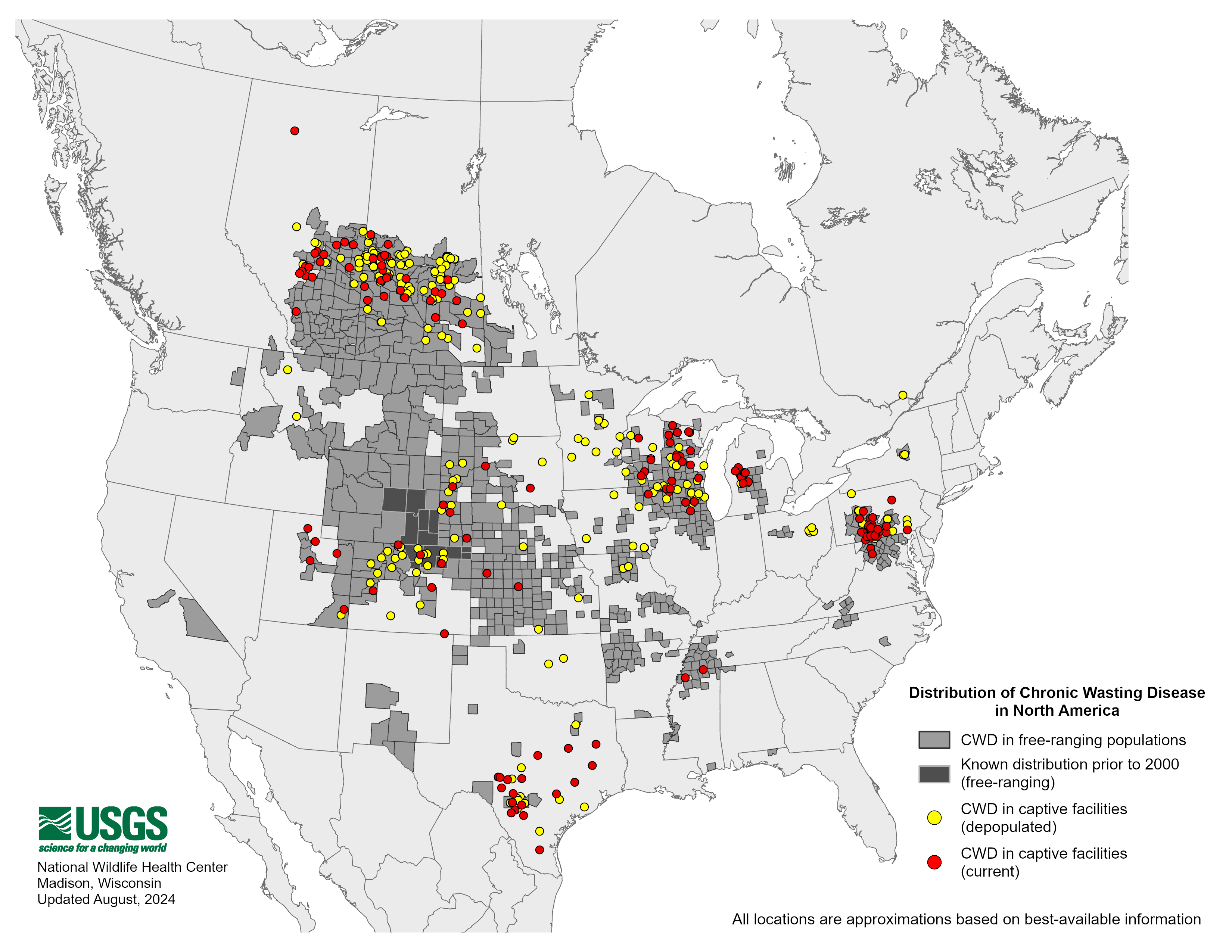July 25, 2019
A new regulation has been established that affects the use of natural deer lures and attractants often used by deer hunters in South Carolina.
The new regulation makes it unlawful in South Carolina to possess or use, for the purpose of hunting or scouting, any substance or material that contains or claims to contain any excretion collected from a deer, including urine, feces, gland oil or other body fluid.
This does not prohibit the use of synthetic products or substances collected by a hunter from deer legally harvested in South Carolina. Synthetic products are clearly labeled as such. If a product is not clearly labeled as synthetic, it should be assumed to contain natural material.
This preventative measure was established as one tool in the battle to prevent the introduction of Chronic Wasting Disease (CWD) into South Carolina. CWD is a contagious, always fatal, neurological disease that affects members of the deer family.
The disease is not caused by a virus or bacteria, but is rather the result of a naturally occurring protein, called a prion, which becomes misfolded and thus resists being broken down by the body the way normal proteins are. When these misfolded proteins are introduced into a healthy deer, they multiply by causing the animal’s normal and healthy prion proteins to misfold and begin damaging the animal’s nervous system. The infectious proteins (i.e., prions) known to transmit CWD have been found in the urine, feces and saliva of infected individuals.
While there has not been a case of CWD detected in South Carolina, or in any neighboring states, the S.C. Department of Natural Resources (SCDNR) is following the lead of other states in proactively prohibiting the use of natural lures and attractants in order to minimize the potential risk for CWD introduction into the state.
“Numerous other states have a ban on these products in place, this is part of a comprehensive effort to keep Chronic Wasting Disease out of our state and protect our valuable deer herd from this devastating disease,” Jay Cantrell, SCDNR Big Game Biologist, said. “There’s no practical or feasible test that can be performed on these natural urine products, or on the deer they collect the urine from, so there’s no way to know if they are safe.”
The disease has been detected in 26 states including: Arkansas, Colorado, Kansas, Illinois, Iowa, Maryland, Michigan, Minnesota, Mississippi, Missouri, Montana, Nebraska, New Mexico, New York, North Dakota, Oklahoma, Ohio, Pennsylvania, South Dakota, Tennessee, Texas, Utah, Virginia, West Virginia, Wisconsin, Wyoming, and the Canadian provinces of Alberta and Saskatchewan. CWD also has been detected in South Korea (captive elk) and Norway (reindeer and moose).




